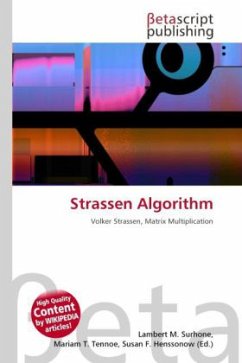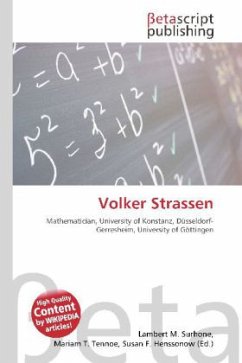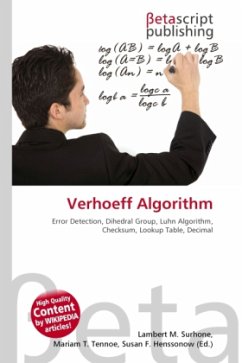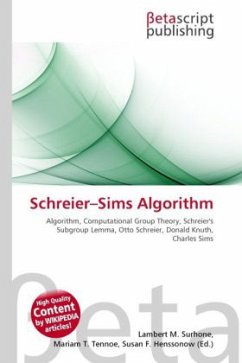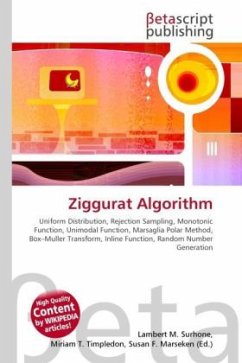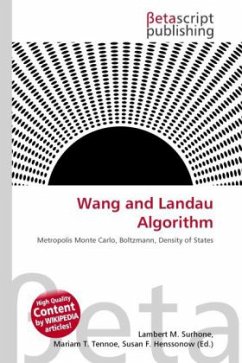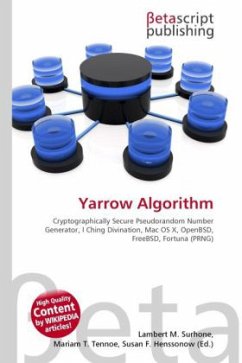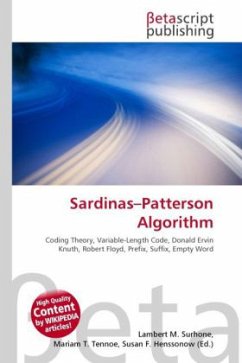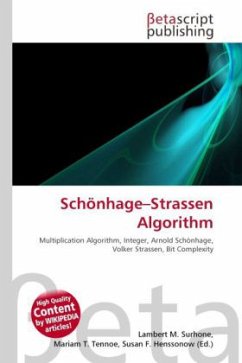
Schönhage Strassen Algorithm
Versandkostenfrei!
Versandfertig in 6-10 Tagen
23,99 €
inkl. MwSt.

PAYBACK Punkte
12 °P sammeln!
High Quality Content by WIKIPEDIA articles! The Schönhage Strassen algorithm is an asymptotically fast multiplication algorithm for large integers. It was developed by Arnold Schönhage and Volker Strassen in 1971. The run-time bit complexity is, in Big O notation, O(N log N log log N), while the arithmetic complexity is O(N log N). The algorithm uses recursive Fast Fourier transforms in rings with 22n + 1 elements, a specific type of number theoretic transform. The Schönhage Strassen algorithm was the asymptotically fastest multiplication method known from 1971 to 2007 when a new method, F�...
High Quality Content by WIKIPEDIA articles! The Schönhage Strassen algorithm is an asymptotically fast multiplication algorithm for large integers. It was developed by Arnold Schönhage and Volker Strassen in 1971. The run-time bit complexity is, in Big O notation, O(N log N log log N), while the arithmetic complexity is O(N log N). The algorithm uses recursive Fast Fourier transforms in rings with 22n + 1 elements, a specific type of number theoretic transform. The Schönhage Strassen algorithm was the asymptotically fastest multiplication method known from 1971 to 2007 when a new method, Fürer's algorithm, was announced with lower asymptotic complexity; however, Fürer's algorithm currently only achieves an advantage for astronomically large values and is not used in practice. In practice the Schönhage Strassen algorithm starts to outperform older methods such as Karatsuba and Toom Cook multiplication for numbers beyond 2215 to 2217 (10,000 to 40,000 decimal digits).



